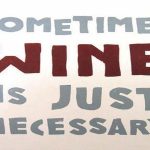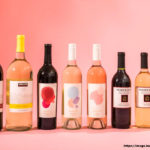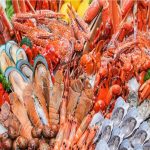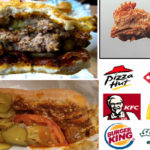You might be a coffee connoisseur with a French press and in-home roaster. You may even think you know everything there is to know about it. But we’re willing to bet that we can surprise you with at least one thing you didn’t know. Whether these fun facts make for good dinner conversation or winning a trivia contest is up to you. Use them as you will!

Hawaii is the only US state to commercially grow coffee
That’s right! Any other coffee you’ve been drinking likely comes from foreign soil such as Columbia or Brazil. For coffee to be the best quality, it requires rich soil, higher altitudes, and tropical climates, which makes Hawaii perfect — and actually the only state in the US that’s qualified. Hawaiian coffee is grown on all the islands, but Kona coffee is considered the best of the best. Kona coffee is grown on the big island in volcanic soil where it gets the best nutrition and is shielded from too much sun. It is said to be a medium bodied coffee in a rich, aromatic blend. For the best cup of coffee in the US, take a trip to the islands and maybe take some surf lessons in Waikiki while you’re there!
Light roast coffee has more caffeine than dark roast
This doesn’t seem like it could be true. The darker the coffee, the stronger the buzz, right? Nope! The fact is that the longer a bean is roasted, as in when it’s roasted to get a darker blend, the more caffeine it loses. This means that slamming those espresso shots before work is doing less for you than a regular cup of joe. So drink the coffee you like and maybe double up if you actually prefer the dark roast.
The average US worker spends at least $20 per week on coffee
Maybe $20 doesn’t sound like a lot until you realize this adds up to more than $1,000 every year. When you factor in other costs like commuting and daily lunch breaks, you could be investing a small fortune just to show up to work. You could save some money and enhance your coffee palate by subscribing to a service like Moustache Coffee Club, where you’ll get new coffee and products to try every month.
Decaf coffee is not actually caffeine-free
Now, there’s something we bet you didn’t know. Even though decaf coffee has a whole lot less caffeine in it than other coffee, it still has about 2 to 5 milligrams in an 8-ounce cup. Decaf espresso, on the other hand, has 0 grams in its 1-ounce serving, so if you truly want to cut out caffeine, that’s the way to go.
Caffeine has several health benefits
Caffeine as a health food? Maybe! While there are times your physician will advise you to cut back on caffeine, coffee actually has some surprising health benefits associated with it. For example, some studies have shown that it can help increase your memory. Other studies show that it may also help prevent skin cancer, cataracts, and Parkinson’s. But the benefits don’t stop there. It can also stimulate hair growth, relieve muscle pain, protect against Alzheimer’s, and reduce fat in the liver. Who knew?
If coffee is your love language, you’ll probably be happy to know it can actually be good for you, even though you already suspected it. And now that you know where to go for the perfect cup of coffee and some other cool facts, you can wow your friends at your next dinner party with your amazing amount of trivia knowledge.








